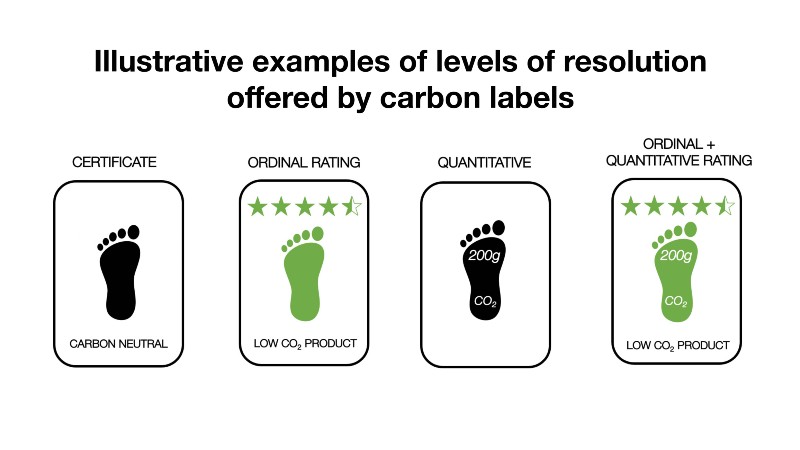How carbon labels can aid shoppers in the fight against climate change

A team of experts, led by Dr Khan Taufique from Oxford Brookes University and Kristian Nielsen from the University of Cambridge, have investigated how carbon labelling can influence businesses and consumers in reducing their carbon footprint
Dr Khan Taufique, of Oxford Brookes Business School, and a team of experts say that carbon labels are an effective measure to change consumer and corporate behaviour as the growing threat of climate change progresses.
What are carbon labels?
Carbon labels are placed on a variety of products to give buyers an estimation of its carbon emissions and impact on the climate, from its creation to end. This can range from food items in supermarkets to brand new motor vehicles.
Some labels provide a simple, clear traffic-light indication about how a product compares to others. Other labels provide an equivalent greenhouse gas emissions number, or CO2e, detailing how much carbon went into the creation, transportation, use and end of a product.
However there are also labels that include both types. Consumers can learn how many grams or kilograms of carbon they use when purchasing anything from a bag of crisps to a new truck. Many carbon labels also resemble nutritional information on grocery items that outline calories and product contents.
How will carbon labelling help to ensure a greener future?
Dr Taufique said: “Carbon labels are an important, feasible way to reduce carbon emissions, and these types of feasible options are more important than ever given the combination of the growing threat of climate change and the inability of the international and national processes to make sufficient progress.
"Carbon labels can lead companies to reduce carbon emissions even if consumer responses to the labels are not strong; and as a result, carbon labels should be designed to affect not only retail consumer behaviour but also the behaviour of corporate managers. That means including both the simple, direct information that consumers are likely to respond to and the quantification of emissions that companies are likely to respond to.
"Carbon labels are particularly important options now because international and national government efforts have had limited success in the past. It also can support development of government measures such as border allowances and carbon taxes.
"Existing literature on carbon labels has focused on how the practice curbs consumers’ carbon emissions. The research discussed in this article, however, reveals that businesses often respond to labelling programmes by reducing their carbon footprint, possibly because the process of calculating carbon footprints enables them to identify efficiencies and the disclosure can affect corporate reputation."
The study addresses key challenges for carbon labels, such as setting uniform standards, collecting accurate data and designing labels for a broad spectrum of products and industries across the globe.
The research is published in the journal ‘Nature Climate Change’, titled ‘Revisiting the promise of carbon labelling'.
Dr Khan Taufique authored the paper along with scholars Kristian Nielsen (University of Cambridge, UK), Tom Dietz (Michigan State University, USA), Michael Vandenbergh (Vanderbilt Law School, USA), Paul Stern (Social and Environmental Research Institute, USA), and Rachael Shwom (Rutgers University, USA).
Image credited to ‘Nature Climate Change’ and Dr Khan Taufique, Kristian Nielsen (University of Cambridge, UK), Tom Dietz (Michigan State University, USA), Michael Vandenbergh (Vanderbilt Law School, USA), Paul Stern (Social and Environmental Research Institute, USA), and Rachael Shwom (Rutgers University, USA).
